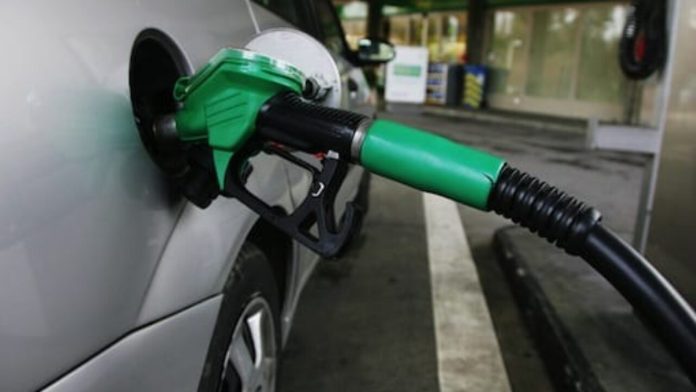BY FESTUS OKOROMADU
A new report has shown vast differences in petrol costs across the world, with Nigeria ranked 22nd in the cheapest petrol price category globally.
The report titled ‘Global Petrol Prices, Octane-95, January 1, 2024’, as posted on their website, also revealed some countries paying over 100 times more for petrol.
“The average price of gasoline around the world is $1.29 per litre. However, there is a substantial difference in these prices among countries.
“As a general rule, richer countries have higher prices while poorer countries and the countries that produce and export oil have significantly lower prices. One notable exception is the U.S. which is an economically advanced country but has low gas prices.
“The differences in prices across countries are due to the various taxes and subsidies for gasoline. All countries have access to the same petroleum prices of international markets but then decide to impose different taxes. As a result, the retail price of gasoline is different,” the report said.
According to data compiled by Global Petrol Prices and presented on a chart in the report, as of January 2024, Iran has the world’s cheapest gasoline at just $0.029 (N26.52) per litre, while Hong Kong has the highest price at $3.101 (N2, 835.77) per litre.
Several major oil-producing countries, including Libya, Venezuela, Kuwait, and Saudi Arabia, enjoy very low domestic fuel costs. Iran tops the list at $0.029 (N26.52), followed by Libya at $0.031 (N28.35) and Venezuela at $0.035 (N32.01).
At the other end of the spectrum are cities and countries with high taxes on fuel.
Hong Kong tops the ranking with gasoline at $3.101 (N2, 835.77) per litre. Prices in Europe are consistently higher, with drivers in Monaco paying $2.353 (N2, 151.75) and those in Norway paying $2.052 (N1, 876.49).
Among other sample countries, the United States came in at $0.911 (N833.08) per litre, putting it near the global average of $1.30 (N1, 188.81). Nigeria stands at $0.722 (N660.25), Brazil at $1.150 (N1, 051.64), and India at $1.252 (N1, 144.92).
According to data from the Organisation of Petroleum Exporting Countries, Nigeria has struggled to meet its expected oil production levels in recent months.
As of November 2023, Nigeria remained Africa’s largest oil producer, churning out 1.37 million barrels per day, according to secondary sources tracked by OPEC.
“The average price of gasoline around the world is $1.29 per litre. However, there is a substantial difference in these prices among countries.”
However, Nigeria’s self-reported production figures directly to OPEC for November showed output of only 1.25 million barrels per day.
“According to secondary sources, total OPEC-13 crude oil production averaged 27.84mb/d in November 2023, lower by 57 tb/d, m-o-m. Crude oil output increased mainly in Venezuela, Libya, and Kuwait, while production in Iraq, Angola, and Nigeria decreased,” OPEC said in its December 2023 report.
Nigeria in the last few months has witnessed drastic change in the oil and gas sector with the total deregulation of the downstream sector.
This had led to a sharp increase in petrol pump prices. The product moved from N190 to N537 and very recently N617 depending on location.
The development has continued to raise reactions from Nigerians and industry stakeholders while prices of household commodities, and transportation among others have continued to soar with the current realities.
But findings show that the price of PMS per litre in Nigeria is the cheapest compared to other countries in West Africa.
According to the July 17, 2023 data obtained from Global Petrol Prices on 14 countries, Nigeria ranks first, followed by Liberia (N747), Sierra-Leone (N863), Benin (N878) and Ghana (N892).
Others are; Togo (N946), Guinea (N1095), Cote d’Ivoire (N1101), Burkina Faso (N1148), Cape Verde (N1,149) Mali (N1,170), Mauritania (N1,204) and Senegal (N1,337/litre).
Further findings showed that the majority of the listed countries are importers of refined fuel while only few of them own a functional refinery or are oil producing.
The Global Petrol Prices in a separate document titled “Global fuel prices, a primer,” said the main differences in prices across countries were due to the cost of distributing the final product and taxes.
It said, “The distribution cost, however, is a relatively small component of the price in most countries. Hence, the key difference is taxation and especially the level of excise taxes.
“These are the government levies on each litre or gallon of fuel sold For example, the price difference between the U.S. and Europe is explained largely by the difference in these taxes.”
Also, it identified crude oil prices, exchange rates, seasonality, refining marketing and distribution costs as four key factors that drive short-term fuel price fluctuations.
It described crude oil prices as a significant part of the final retail price stressing that oil prices can double or decline drastically within the scope of a few weeks.
These fluctuations, it said, are reflected in pump prices.
For exchange rates, it said because oil is traded in dollars, when the domestic currency depreciates, “this makes oil imports more expensive even if crude oil prices are unchanged. The reverse happens when the local currency appreciates: imported oil products become cheaper and fuel prices decrease.
“In fact, the effect on fuel prices of changes in crude oil prices and changes in exchange rates is the same. Whether crude oil prices are 10 percent higher or the dollar is 10 percent more expensive is the same for countries that do not use the U.S. dollar as their currency,” the report said.

